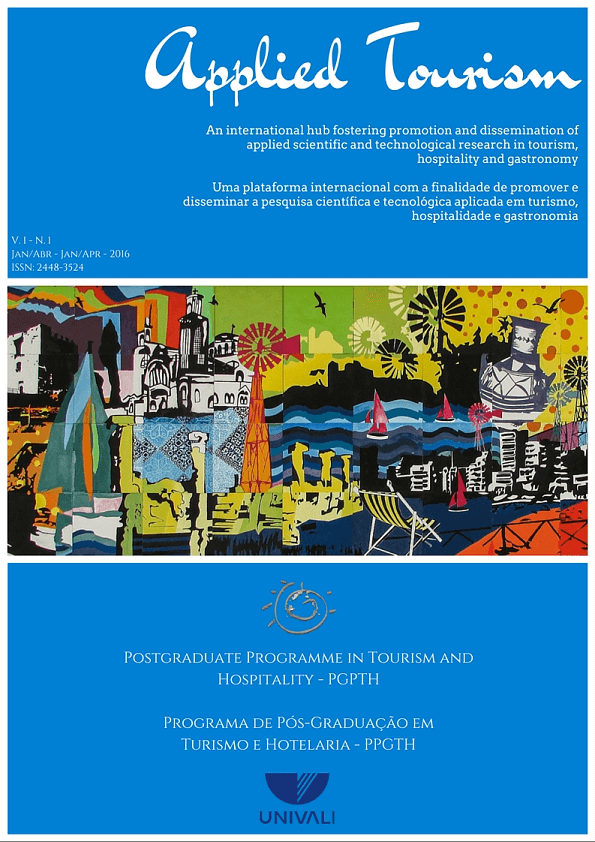TURISMO DE NEGÓCIOS: UM ESTUDO DE CASO SOBRE A INFLUÊNCIA DO RESTAURANTE EM NEGÓCIOS INTERNACIONAIS
DOI:
https://doi.org/10.14210/at.v1n1.p47-59Abstract
O problema encontrado pelos autores apresentou-se na seguinte forma: A hospitalidade dos restaurantes influencia nas contratações de negócios internacionais? Partindo da referente pergunta, objetivou-se compreender a relevância da hospitalidade dos restaurantes na contratação de negócios envolvendo turistas internacionais. Também se entendeu necessário a compreensão de três objetivos específicos; Foi observada a importância da ambientação dos restaurantes, capacidade de adequação física e de cardápio por parte dos restaurantes e a viabilidade de atendentes que possam atender o turista em seu idioma natal. As hipóteses exploradas foram (H1) os restaurantes influenciam a favor da assinatura de negócios internacionais;(H2) os restaurantes não possuem relevância como local para negociações internacionais. Na coleta de dados foi feita uma pesquisa exploratória utilizando método de observação direto, um levantamento bibliográfico respaldado no protocolo de estudo de caso
de Yin (2001), sendo também aplicadas entrevistas semiestruturadas. Foram obtidas respostas positivas à influência dos restaurantes, demonstrando a capacidade de atuação da comensalidade como fator de
negociação entre os turistas de negócios. Outro importante dado observado foi o aumento de confiança proporcionado ao anfitrião quando
este recebe seu convidado, no restaurante que costumeiramente frequenta
Palavras-Chave: Turismo de Negócios; Gastronomia; Comensalidade; Hospitalidade;
Downloads
Published
Issue
Section
License
In this term of responsibility I (we) certify the participation in the drafting of the attached article, thereby making public my (our) responsibility for its content. I (we) declare not omitting any connections or financing agreements between I (we) and entities and / or institutions that may have an interest in the publication of this article. I (we) certify that the article is original and that the work, in whole or in part, or any other work with content substantially similar to my (our) authorship, in any other format (printed or electronic), was not sent to another journal and will not be sent while is being considered by the Applied Tourism. In this consent form, the authors give permission to the journal, in the case of approval by the Editorial Board, for the publication of the attached article in hard copy and/or electronic form, in a regular edition of the journal.










